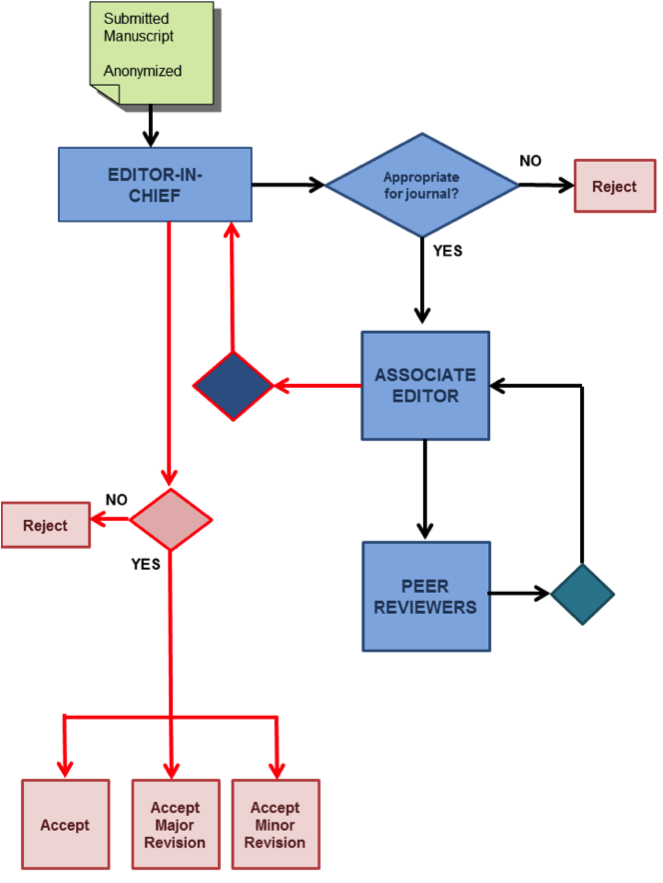Editorial Guidelines
Focus and Scope
This journal seeks to advance the field of human computation by coalescing related work from across disciplines and reporting important scientific results from academia, industry, and government.
The content scope of this journal is captured by the topic list on the journal's home page.
Submission types are listed on the Author Guide page.
This journal implements exacting standards, strict but unbiased peer review, adherence to scientific philosophy, and a relentless emphasis on encouraging and embracing interdisciplinary contributions.
Publication Policies
Human Computation is an open access, peer-reviewed journal that adheres to high scientific standards. All published manuscripts will be made publicly available following acceptance of the fully edited complete manuscript.
Peer Review Process

OVERVIEW OF THE REVIEW PROCESS
Manuscripts are submitted to the Editor-in-Chief and contain the main body of the text, including key words, together with a separate page listing the authors and their institutional affiliations (Please see Author Guidelines). If the topic and treatment are appropriate for the journal, the manuscript is assigned to an Associated Editor (subject matter expert) who will assign peer reviewers and oversee the review process. Once the review process is complete, the associate editor recommends acceptance with minor revision, acceptance with major revision or rejection to the Editor-in-Chief who makes a final decision and transmits that decision to the corresponding author(s).
Human Computation has a “double blind” review process in which authors are not told who reviewed their papers and reviewers do not know who the manuscript authors are.
Human Computation makes every effort to return a decision on a manuscript within 2 months of submission. Authors should keep in mind that delays may be introduced when finding qualified reviewers willing to review manuscripts involves more time than normal.
MANUSCRIPT REVIEW CRITERIA
Human Computation solicits manuscripts from the broad and interdisciplinary field of Human Computation with the goal of disseminating scientifically rigorous information and conscientious discourse that will promote the field of Human Computation and encourage interdisciplinary interactions, dialogue and processes.
Peer reviewers are asked to evaluate the scientific quality, the methodological detail, and the general relevance of submitted manuscripts. Three peer reviewers will be assigned by the Associate Editor to each submitted article; two of these reviewers will be experts in the subject matter of the submitted article while a third will lie outside that area but within the general field of human computation. Reviewers will be asked to recommend one of the following actions to the Associate Editor:
• Accept without revision
• Accept with minor revision, no re-review needed
• Accept with major revision, re-review required
• Reject
Each peer reviewer will submit a full critical review, including recommendations for editorial changes as s/he feels are required. In addition, each peer reviewer will be asked to provide specific feedback on several dimensions, including relevance, technical rigor, exposition, and others, depending upon submission type.
The online submission system will guide reviewers through the review process.
Publication Frequency
Human Computation will be organized into quarterly volumes. However, articles accepted by Human Computation will be published as soon as they are ready, appearing in the current volume's Table of Contents.
Open Access Policy
This journal provides immediate open access to its content on the principle that making research freely available to the public supports a greater global exchange of knowledge

